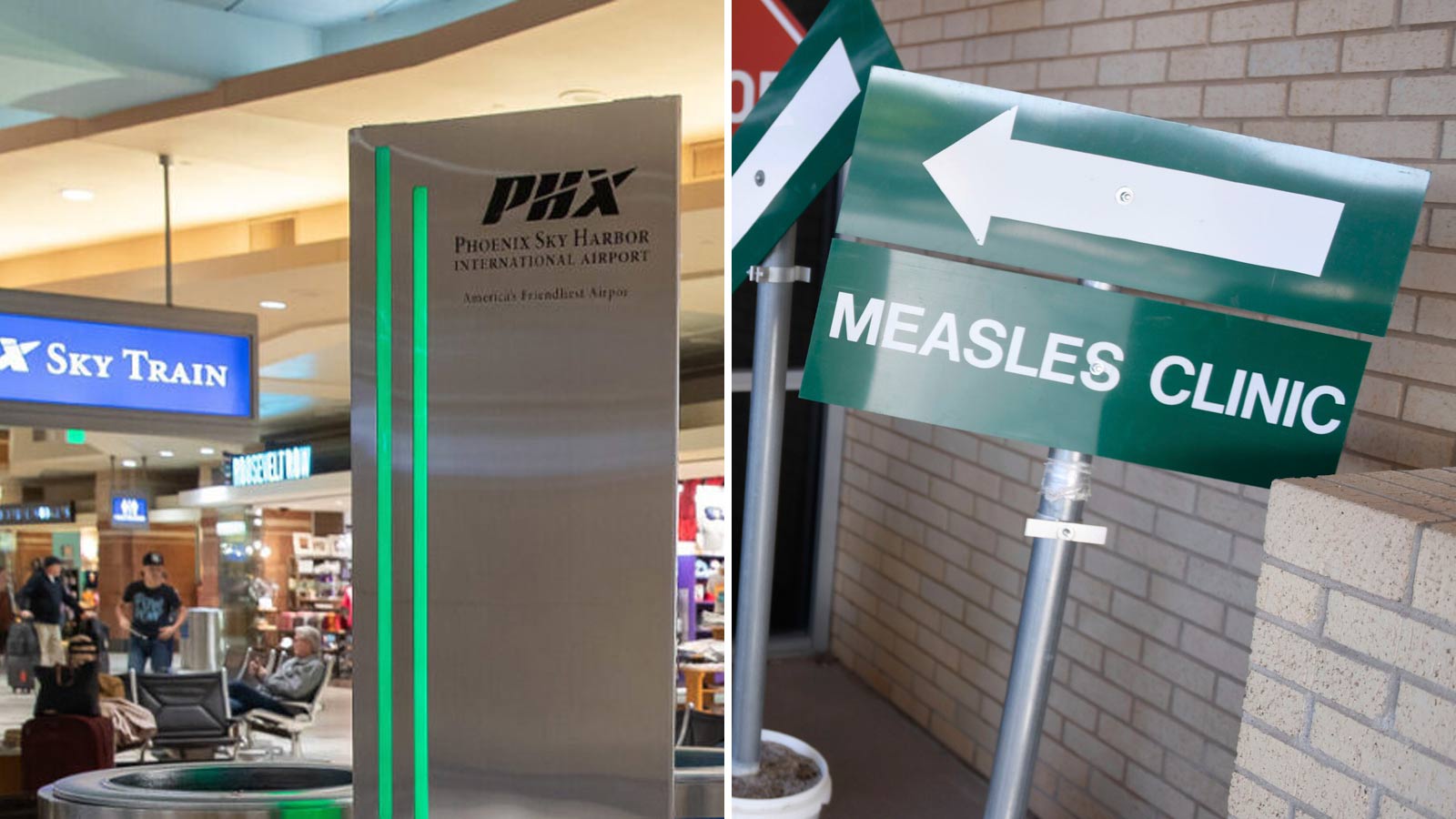PHOENIX – Health officials have confirmed that a traveler infected with measles passed through Phoenix Sky Harbor International Airport last week. The Maricopa County Department of Public Health (MCDPH) reported the possible public exposure occurred on June 10 between 5 p.m. and midnight in Concourses C and D of Terminal 4, beyond security checkpoints.
Dr. Nick Staab, MCDPH’s chief medical officer, stated, “MCDPH is coordinating with other agencies to notify people who may have been exposed so they can watch for symptoms and get care if any develop.” He emphasized the importance of vaccinations, saying, “With a virus as highly infectious as measles, it’s a reminder that we all should stay up-to-date on our vaccines to keep ourselves and those around us safe.”
Following a confirmed measles case, health officials typically alert anyone who was on the same flight as the infected passenger. Dr. Staab highlighted the severity of the disease, stating, “Measles is both highly contagious and preventable. It can cause severe illness, including death, so we strongly encourage anyone who has not been vaccinated to get vaccinated to prevent further spread.”
As of June 9, the Arizona Department of Health Services reported four confirmed cases of measles in 2025, all located in Navajo County. Each of these cases involved unvaccinated individuals with recent international travel history.
Nationwide, there have been 1,197 confirmed measles cases this year, according to data from the Centers for Disease Control and Prevention (CDC).
Measles is a highly contagious respiratory illness caused by one of the most infectious viruses in existence. It spreads easily through the air via coughing, sneezing, or even breathing. It predominantly affects children.
The virus first infects the respiratory system and then disseminates throughout the body, leading to symptoms such as a high fever, runny nose, cough, red watery eyes, and ultimately a rash. Typically, the rash develops three to five days after the onset of initial symptoms, starting as flat red spots on the face before spreading to the neck, torso, arms, legs, and feet. A fever accompanying the rash can exceed 104 degrees Fahrenheit, as noted by the CDC.
Although measles typically does not result in death, it can lead to serious complications in children, such as pneumonia in approximately 1 in 20 cases and encephalitis in about 1 in 1,000 cases, potentially resulting in convulsions, deafness, or intellectual disabilities.
Vaccination remains the best defense against measles. The measles, mumps, and rubella (MMR) vaccine is recommended in two doses: the first between 12 and 15 months of age and the second between 4 and 6 years. However, vaccination rates have decreased since the onset of the COVID-19 pandemic, with many states falling below the 95% vaccination threshold necessary to safeguard communities against outbreaks. In Arizona, just over 88% of kindergarten students received two doses of the MMR vaccine during the 2023-24 school year, according to the latest state health department data.
The Associated Press contributed to this report.

